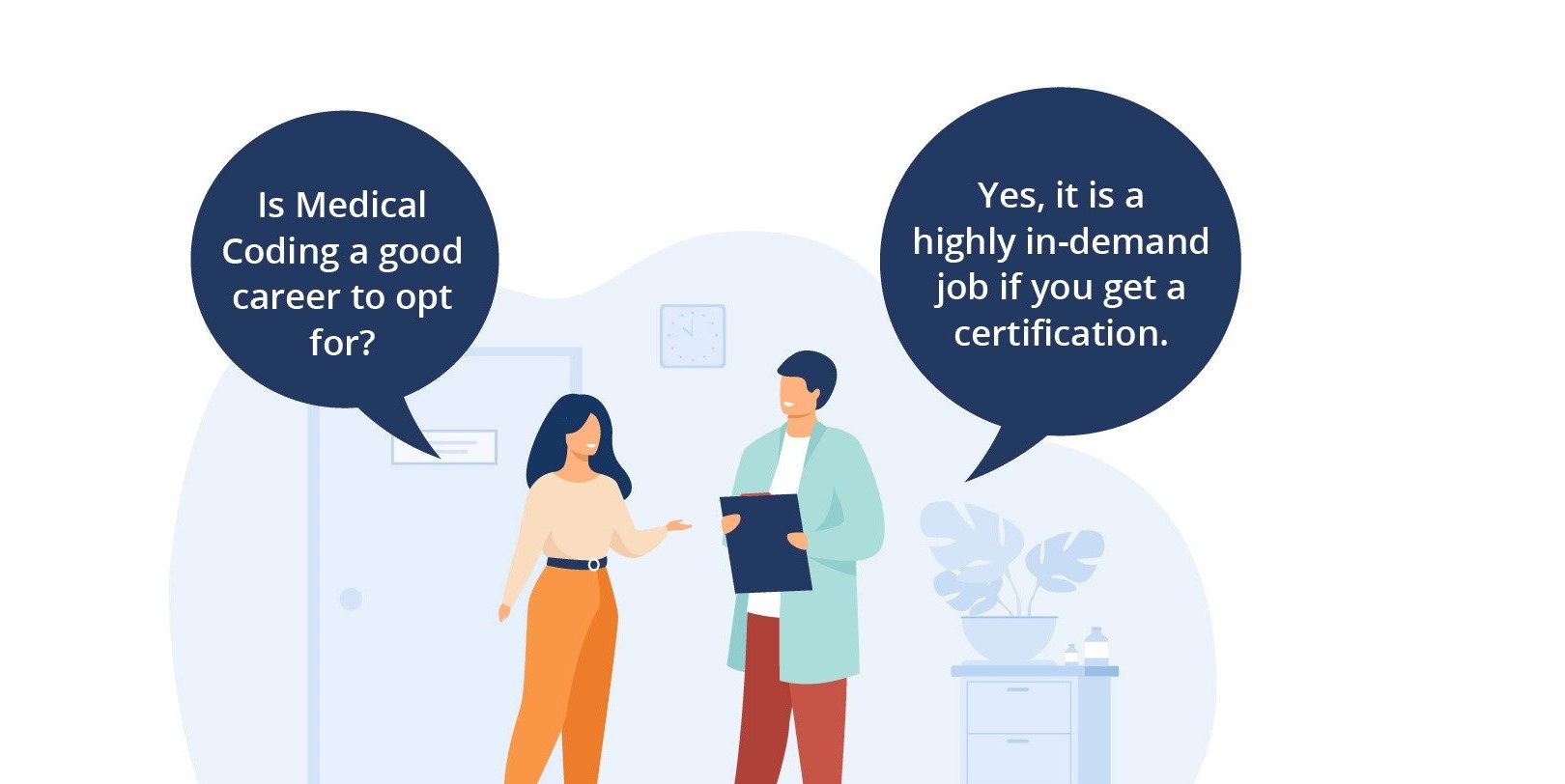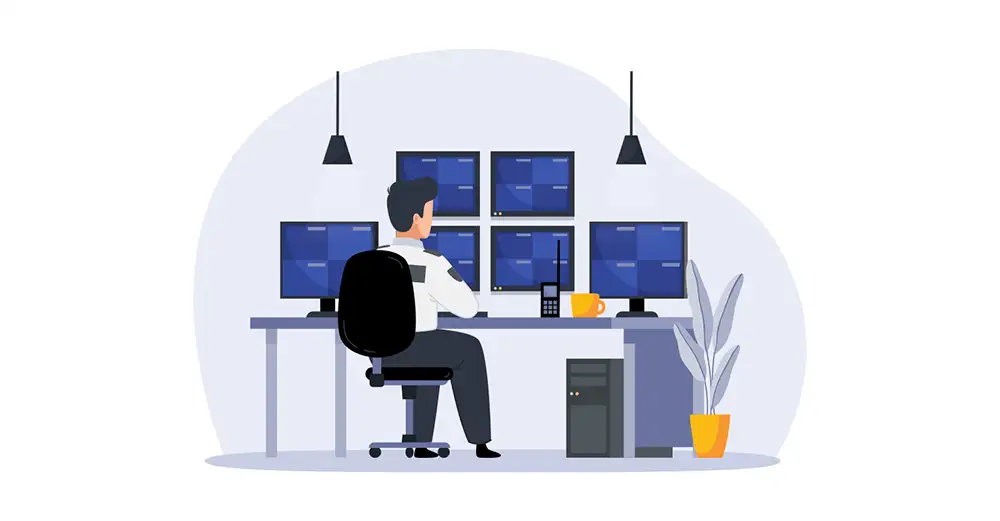With a $281.8 billion market size, the Healthcare industry is reaching historic growth numbers. Now might be the perfect time to initiate your career in medical coding. Medical coding and billing sit at the epicenter of all kinds of Healthcare services. The niche is the backbone of the entire healthcare system since it bridges the gap between medical service providers and insurers.
If you wish to make a career in medicine or administration, considering medical coding can be a game-changer. According to the Bureau of Labor Statistics (BLS), Medical Coding and Billing profile is expected to grow at an 8% rate from Financial Year 2019 to 2029. Therefore, with tens of thousands of job opportunities available and significantly more to open in the future, medical coding makes a perfect career choice.
Let's move ahead and understand what is medical coding, exactly?
Before exploring the role, scope & responsibilities of medical coders, we must have a thorough understanding of this profile. Going by definition as per the American Academy of Professional Coders (AAPC), Medical Coding is the transformation of medical procedures, healthcare diagnosis, treatment details, associated services & equipment into medical alphanumeric codes. The coding standards are approved and universally used by hospitals, clinics & other healthcare establishments.
In simpler terms, when a patient undergoes treatment, the medical coder translates the physician's reports about diagnosis, checkup, or procedure into codes. Once the translation is done & verified, the insurance company understands what medical service has been rendered and processes the bill. Therefore, without needing to go to a medical school, you can work with healthcare professionals by building a career in medical coding.
Medical Coding Standards:
The job of medical coders revolves around tagging medical reports, procedures with corresponding, relevant codes. There are several coding classifications used by medical coders around the world. Some of the popular ones are the International Classification of Diseases (ICD), ICD-10 & Current Procedural Terminology (CPT).
ICD:
ICD is the coding standard for tagging medical reports related to mortality and morbidity stats. The ICD system is used in over 100 countries, and it helps medical coders tag diseases of all kinds. These are alphanumeric codes that are developed and monitored by the World Health Organization (WHO). One should note that more than 70% of healthcare procedures fall under ICD coding standards.
ICD-10:
The latest coding standard in the medical coding and billing niche is ICD-10. The classification features over 68,000 medical codes that cover lengths and breadths of diseases and malformations. There is a huge demand for medical coders who are certified for ICD-10 standards. A medical coding course can help you grasp all vital concepts and kickstart your career as a medical coder.
CPT:
CPT or Current Procedural Terminology features 10,000+ codes that are published by the American Medical Association (AMA). These codes correspond to surgeries and diagnostic services performed on the patients. As a medical coder, you'd be interacting with medical codes through software, Microsoft Excel & Master Patient Index (MPI).
Benefits Of a Career in Medical Coding:
Highly Rewarding:
Medical coders and billers are valuable members of the healthcare community. Their work is to reduce medical mistakes, keep costs down, ensure proper patient history records, and more. The job profile is respected and holds significant importance. Physicians will read the records tagged by you before performing a procedure on the patient.
Fast-Paced Industry:
The Healthcare industry is experiencing a paradigm shift. With the advent of advanced technologies and electronic health records (EHRs), medical coding promises a lucrative career for freshers and other professionals. Gone are the days when the patient records were managed on paper. Today, state of the art medical billing and coding software are leading the front.
Dynamic Workplace:
As a medical coder, you can achieve a superior work-life balance. You can work in hospitals, clinics, support centers, testing labs, and other medical establishments. Moreover, you can also work remotely. Since there is no direct relationship with the patient, medical coders can work remotely. Unlike other medical professionals, you won't have to stay available 24x7. Medical coders pull comfortable 9-5 type shifts.
Make a Career in a Few Months:
Unlike graduates spending considerable time to make their career in a field, medical coders can kick start their career in a few months only. To become a practicing medical coder and biller, you don't need a medical degree. A medical coding course takes less than a year to finish and is highly rewarding. Upon successful certification, you can work in a wide range of healthcare settings across the world.
Great Salary:
Do you still have doubts about starting a career in medical coding? Let's look at the salary numbers then. According to AAPC, the average annual salary of a medical coder is $54,000, and the number is growing every year. Medical coding finds its place in the 14 most payable jobs in the healthcare domain.
Independent Career Path:
As a medical coder, you'd need minimal supervision from the healthcare managers. Once you have the patient reports, you'd work with electronic databases, fetch codes, and tag the documents. Hence, the career is highly independent and has a viable learning curve throughout the years. You can even start your medical coding practice and get local healthcare providers aboard and process their reports.
Wrapping It Up:
Medical coding allows you to be a part of a meaningful workforce. Without properly coded reports, healthcare providers can't be reimbursed by insurance companies. Therefore, medical coders hold a significant role in acknowledging medical procedures, tagging them with codes, and processing claims. The niche projects a positive job outlook. A medical coding course can open your doors to several avenues and hence, a lifelong career. You can learn the healthcare industry inside out and with time, hold significant admin positions.
 +971 2 6713828
+971 2 6713828




